Dear Readers, Alfalfa sprouts, or lucerne sprouts, are an extremely nutrient-dense superfood. It can prevent many diseases and help you have a healthier body. You can find out everything you need to know about the delicious sprouts in this article.
Alfalfa, also known as lucerne, is a very popular crop and sprouted. It is characterized by its very diverse and high nutrient content and is helpful in preventing and combating many physical ailments.
What Alfalfa is
We mainly eat the sprouts of lucerne or alfalfa. The plant itself, on the other hand, is often used as animal feed.
You can recognize alfalfa by its clover-like leaves and purple flowers. Bumblebees love these flowers and are responsible for 78 percent of pollination. Bees, on the other hand, account for just one percent of pollination.
In Finland, lucerne is therefore specially grown in areas where there are many bumblebees. When the plant was brought to Australia and New Zealand in the 19th century, it was initially unable to thrive there due to the lack of bumblebees in Oceania.
At the suggestion of the famous naturalist Charles Darwin, bumblebee colonies were brought to the countries.
Origin and names of alfalfa
Like many of the foods now known as superfoods, alfalfa was recognized as a useful and valuable plant long before our time. In ancient times, around 500 years before Christ, alfalfa was already known in Persia, and from there it reached Greece.
Over the centuries, the plant spread from Italy and Spain to America and Central Europe. The Arabs gave the crop the name alfalfa, which can be translated as “father of all food”.
This is probably an indication that even then people seemed to know how healthy alfalfa is. It is also known to us today as alfalfa or snail clover. At that time it was mainly used as rich cattle fodder.
Over time, however, its popularity also grew among people, who, however, mainly consumed the sprouts.
Health Effects and Benefits of Alfalfa Sprouts
Alfalfa sprouts are a real miracle drug in terms of their nutritional content and effects.
Alfalfa is nutrient rich
The sprouts are characterized by the fact that they not only have a lot of nutrients but are also very diverse. Alfalfa basically has a little bit of everything, making it ideal to add to everyday meals. In addition, the sprouts contain few calories.
Alfalfa sprouts are also rich in minerals, from phosphorus to calcium and magnesium, which help you to meet your daily needs.
Supports the gut and the immune system
Most of the immune system in our body is located in the gut. At the same time, however, most bacteria are found there. It is all the more important that you strengthen your immune system. Saponins help with this.
These are certain substances that are mainly found in plants and protect them naturally against fungal attacks.
Alfalfa contains a particularly large number of these saponins. They bind cholesterol and bile acids in the intestines, preventing them from being converted and entering the bloodstream.
Otherwise, both represent a certain risk of cancer, which is significantly reduced by the saponins. They also flush bacteria and other pathogens out of the intestines, thereby reducing another risk of cancer. So if you want to boost your immune system, alfalfa is definitely a good choice.
Helps with autoimmune diseases
In autoimmune diseases such as lupus, the immune system of the sick person becomes unbalanced. It targets your own body and often triggers inflammation or other ailments.
These diseases are difficult to cure, but studies have found evidence that saponins can make a significant contribution to improving symptoms. This can also significantly increase the life expectancy of those affected.
Since alfalfa contains a lot of saponins, they can be very supportive and helpful in autoimmune diseases.
Rich in proteins
It is well known that proteins are important for building muscle. They are also important for healthy cell structure. Alfalfa is high in protein, but it also has another benefit.
Proteins are made up of different amino acids. Eight of them, the so-called essential amino acids, cannot be produced by the body itself and must therefore be obtained from food.
Fish and poultry are particularly good for this, but also eggs and milk, and alfalfa. In fact, all eight missing amino acids are contained in these sprouts.
Positive influence on hormone balance and thyroid
Alfalfa contains a plant hormone called coumestrol. It has a so-called estrogenic activity and can significantly ease the discomfort of menopausal women.
For example, it can relieve hot flashes and night sweats.
Alfalfa also contains vitamin K. This is a blood-clotting vitamin that can counteract heavy bleeding. Coupled with alfalfa’s hormonal properties, it can have positive effects on menstrual cramps.
Alfalfa also contains called peptides that are similar to thyroid hormones. Researchers suspect that you can prevent thyroid diseases by regularly eating alfalfa sprouts.
Preventive for osteoporosis
The vitamin K contained in alfalfa sprouts is also important for the substance of your bones. Calcium can only be used properly by the body and bones can only be kept healthy with the help of vitamin K. Alfalfa also contains a particularly large amount of manganese, as well as phosphorus and vitamin D.
All of these nutrients contribute to bone health, which can counteract diseases such as osteoporosis. Osteoporosis is a disease that attacks the bones in the body, making them unstable and porous.
Rich in vitamins
In addition to vitamin K, which is important for bone health, alfalfa sprouts also contain a large amount of vitamin C. It is important for our body to build and keep strong bones, connective tissue, and teeth. Alfalfa sprouts are even considered one of the best sources of vitamin C.
For comparison, a full cup of alfalfa contains as much vitamin C as six glasses of orange juice. The sprout also contains many other vitamins.
Natural anti-aging agent
Because of its many nutrients, alfalfa sprouts can act as a natural anti-aging agent. The many antioxidants contained in the sprouts protect against called free radicals.
These are substances that we absorb from the environment. They attack our cells, causing them to age or can even cause cancer. Antioxidants, which we ingest through food, protect against these cell attacks.
Alfalfa also strengthens the immune system and thus protects even more against the aging of the body.
In general, sprouts contain many nutrients that help your skin to stay healthy.
Use of alfalfa
Due to their numerous health benefits, it is not surprising that sprouts have become very popular and are gradually creeping into our homes. You can find out what you can use alfalfa for here.
Alfalfa sprouts as a food
You can easily integrate alfalfa into your diet without much effort. You can add the sprouts to your salad, puree them into a smoothie, or add them to your sandwich.
They taste particularly good with cheese. Or you put them in the pan when you prepare fresh vegetables.
However, alfalfa or alfalfa is also available as a tea or powder. Their uses are as varied as their nutritional content, so you can actually combine them with almost anything.
Alfalfa as horse feed
Since lucerne or alfalfa has high protein content, it is also often used in cattle breeding, especially as horse feed. Proteins are long chains of amino acids that horses cannot produce themselves. Therefore, the animals have to ingest them through food.
Breeding horses and sport horses in particular are fed alfalfa from a young age to encourage muscle growth. The high calcium content also supports muscle building and bone growth.
Alfalfa can be fed either in the form of hay or pressed into pellets. One should make sure that it is not chopped too coarsely.
Sharp-edged food can cause injuries to the stomach, especially in young animals. Mixing it in with hay or other soft feed shouldn’t cause any problems though.
Grow your own alfalfa sprouts
After all the benefits and healthy effects, you may have whetted your appetite and craved the delicious sprouts.
We’ll show you in three steps how you can easily grow them yourself at home. They are even ready to be eaten after a week.
Day 1: Soak seeds
Alfalfa seeds are best bought online in one of the numerous online shops. But you can also often find them in drugstores, health food stores, and health food stores.
If you bought the seeds, you will first need to soak them in water for about 4 to 6 hours. Note that the seedlings will grow up to 12 times larger. So, it’s best to just take a teaspoon or two of seeds at first.
When the six hours are up, place the seeds in a sprouting tray. It is certain sprouting or sprout glasses that are open at the bottom and can be placed at a slight angle so that excess water can drain off.
Day 2 to 6: Allow seedlings to thrive
Now the little seedlings can grow. They love as much sun as possible and warm room temperatures. It should not be much cooler than 18 and no warmer than 22 degrees Celsius at their location.
The more light they get, the more chlorophyll can be produced, which not only gives the sprouts their green color but also makes them extra healthy. You also need to rinse them with lukewarm water two to three times a day.
If you don’t have a sprouting jar, you can also spray them with a fine spray bottle. At the same time, you should make sure that the seedlings do not form clumps. Mold can grow there quickly.
Day 7 to 8: sprout harvest
After about a week, you can harvest your home-grown alfalfa sprouts. It is best to rinse them well again so that the seed pods separate from the sprouts. Your sprouts are particularly tasty if you eat them straight away. Otherwise, they will keep for a few days in the fridge.
What you should consider with alfalfa
To date, no negative effects of alfalfa are known. Nevertheless, you should pay attention to small points in certain cases.
Caution with diabetes
While some sources claim that the alfalfa sprouts lower blood sugar levels, other researchers caution diabetics about the sprouts. They can reportedly cause unexpected fluctuations and changes in blood sugar.
So if you have diabetes, you should probably talk to your doctor in advance to be on the safe side and clarify whether you can eat the sprouts without hesitation.
Can have a laxative effect
While alfalfa sprouts are good for digestion, you should be careful with the amount. For example, sprouts pressed into juice can have a laxative effect if consumed in excess.
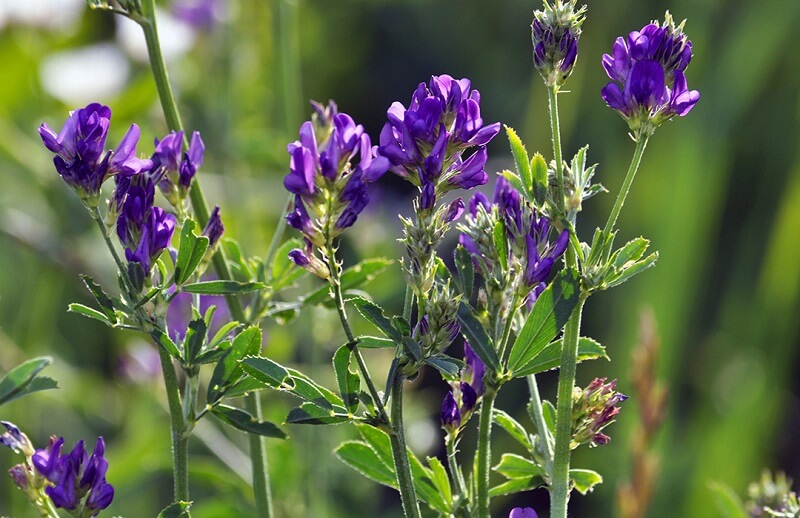
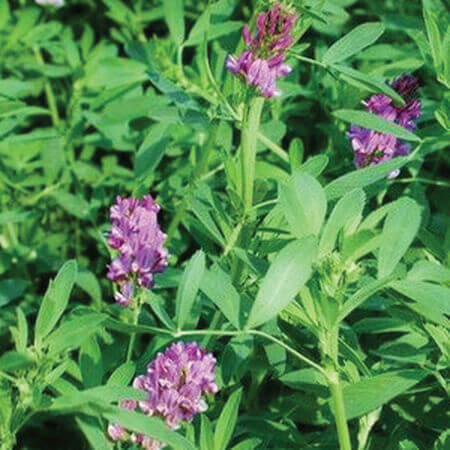
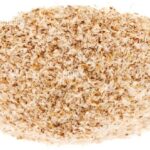

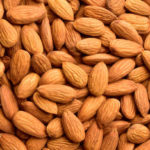
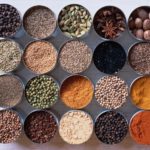
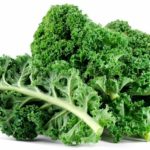
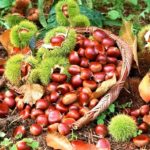
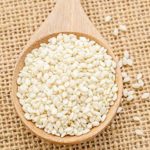





[…] are many good reasons to include chestnut skin beauty in your everyday diet. Together with a balanced diet, sweet chestnuts strengthen your mental and […]